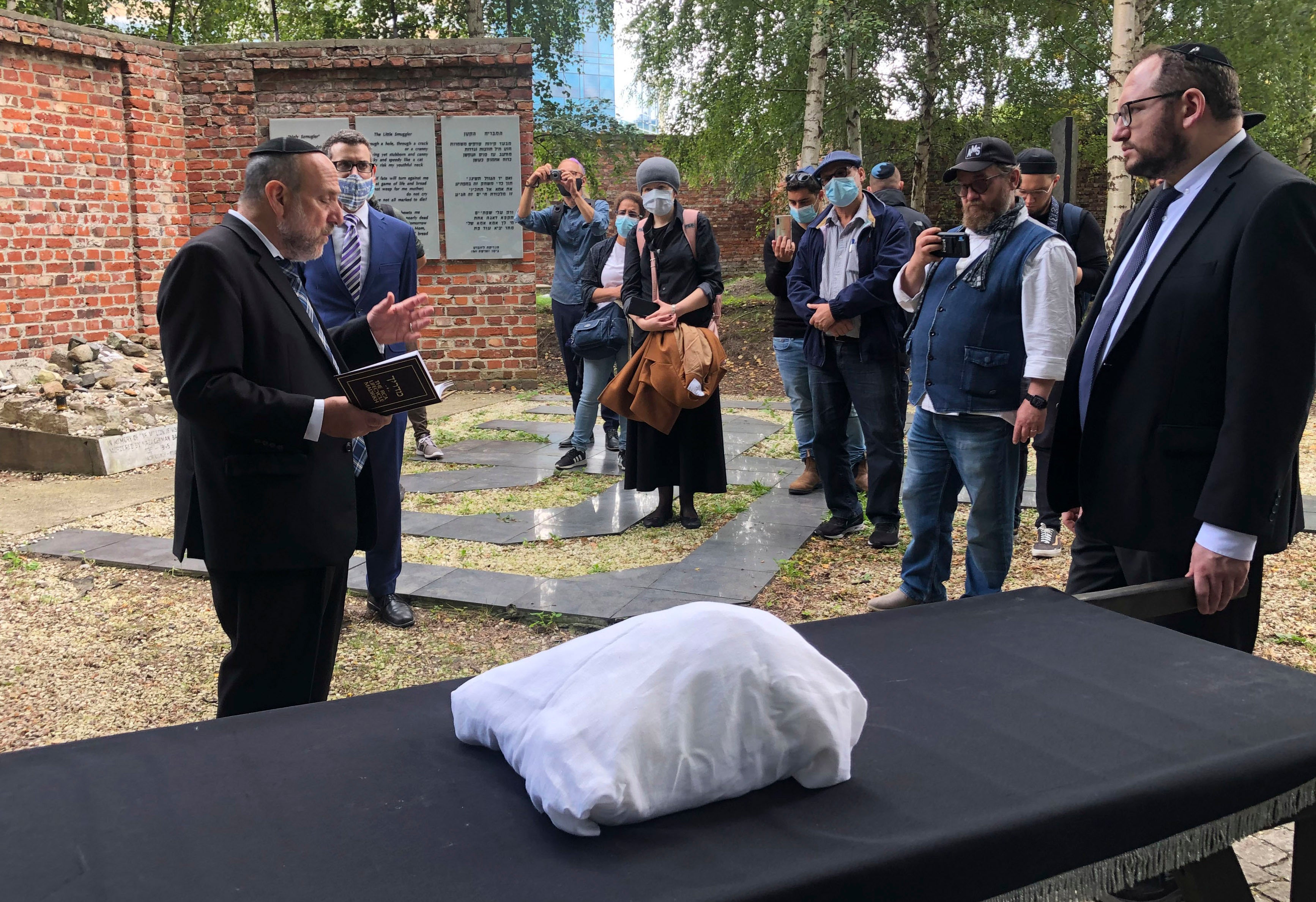Jewish leaders bury remains found in former Warsaw ghetto
Warsaw’s Jewish community has buried an unidentified Holocaust victim whose remains were discovered in a building that was within the Warsaw Ghetto during World War II

Your support helps us to tell the story
From reproductive rights to climate change to Big Tech, The Independent is on the ground when the story is developing. Whether it's investigating the financials of Elon Musk's pro-Trump PAC or producing our latest documentary, 'The A Word', which shines a light on the American women fighting for reproductive rights, we know how important it is to parse out the facts from the messaging.
At such a critical moment in US history, we need reporters on the ground. Your donation allows us to keep sending journalists to speak to both sides of the story.
The Independent is trusted by Americans across the entire political spectrum. And unlike many other quality news outlets, we choose not to lock Americans out of our reporting and analysis with paywalls. We believe quality journalism should be available to everyone, paid for by those who can afford it.
Your support makes all the difference.Warsaw s Jewish community buried an unidentified Holocaust victim on Tuesday whose remains were discovered this summer in a building that was within the Warsaw Ghetto during World War II.
“We are here as the family for a person we don't know,” Poland's chief rabbi, Michael Schudrich, said as the bones, wrapped in white cloth, lay on a wooden cart and community members gathered together.
Four men pulled the cart to the grave, where the bones were buried with soil from Israel, and Jewish leaders recited Kaddish, the Jewish prayer for the dead.
The ceremony took place in Warsaw's Jewish Cemetery, one of the largest Jewish cemeteries in Europe in a city that was a leading center of Jewish life until the Holocaust.
Leszlaw Piszewski, the president of the Union of Jewish Religious Communities in Poland, said the burial was a very emotional event for him, all the more so coming on the eve of Yom Kippur, one of the most sacred days in the Jewish calendar.
“After nearly 80 years this unknown person got his dignity back,” Piszewski said. “This is very important. This is the only thing that we can do for the unknown victim."
The remains were discovered due to a water break in a building in Muranow, a Warsaw district that was largely Jewish before the war and was the site of the Warsaw Ghetto during the German wartime occupation of Poland.
Marek Slusarz, a man who lives and runs a community nonprofit foundation in the building, discovered the human bones when he was searching in the basement for the source of a water break. When he and a plumber found them, he alerted police and the Jewish community.
It is believed that the remains belonged to a Jew who was in hiding when the German forces crushed the Warsaw Ghetto Uprising of 1943 by razing the area to the ground.
The area was rebuilt after the war on top of the wartime rubble.
Slusarz said that despite the tragedy, it was a source of satisfaction for him to have a role in the victim receiving a dignified burial. Not Jewish himself, he said he hoped such events would inspire younger generations in Poland to preserve the memory of the centuries of Jewish and non-Jewish co-existence in Poland.
A representative from the Israeli Embassy laid a wreath and Wojciech Kolarski, secretary of state in the office of President Andrzej Duda also paid his respects at the funeral.